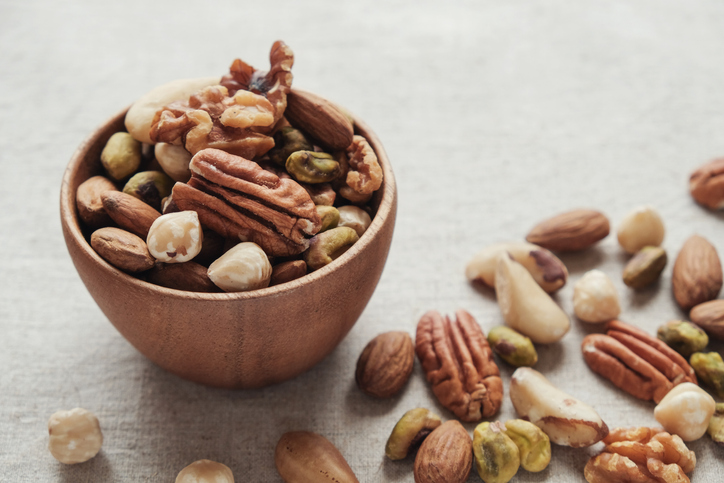By Isabelle Huot
Rich in plant protein, nuts and seeds are good meat substitutes. They’re healthy snacks on their own, but they can also enhance the taste and nutritional value of many dishes. While North Americans on average eat only one-third of their protein in plant form (nuts, seeds, and legumes), we would do well to incorporate more of them into our diet, as other populations do.
Here’s an overview of the health benefits of nuts and seeds.
- They contain 45 to 75% fat. Luckily for our hearts, they have more unsaturated fats than saturated fats. Polyunsaturated fats include the popular omega-3s, which are found in seeds and walnuts.
- They also provide fibre, calcium (almonds, sesame seeds, and soybeans), iron, zinc, magnesium, phosphorus, folic acid, vitamin E, and B-complex vitamins.
- Their high soluble-fibre content is another bonus for heart health, as this fibre reduces total cholesterol levels and has a positive effect on blood sugar.
- They’re one of the main sources of vitamin E, with antioxidant properties that are good for heart health. As we age, this vitamin also helps to maintain immune function. Other excellent elements for the heart include L-arginine, phytosterols, phytoestrogens, and copper.
- According to nutrition researchers, nuts may contain other elements that have not yet been identified that may help to reduce the risk for various diseases.
How Much Is Enough?
To enjoy the health benefits of eating nuts and seeds, a small quantity several times a week is plenty—a 30-millilitre (2-tablespoon) to 60-millilitre (¼-cup) serving is ideal. Try adding them to salads or breakfast bowls.






